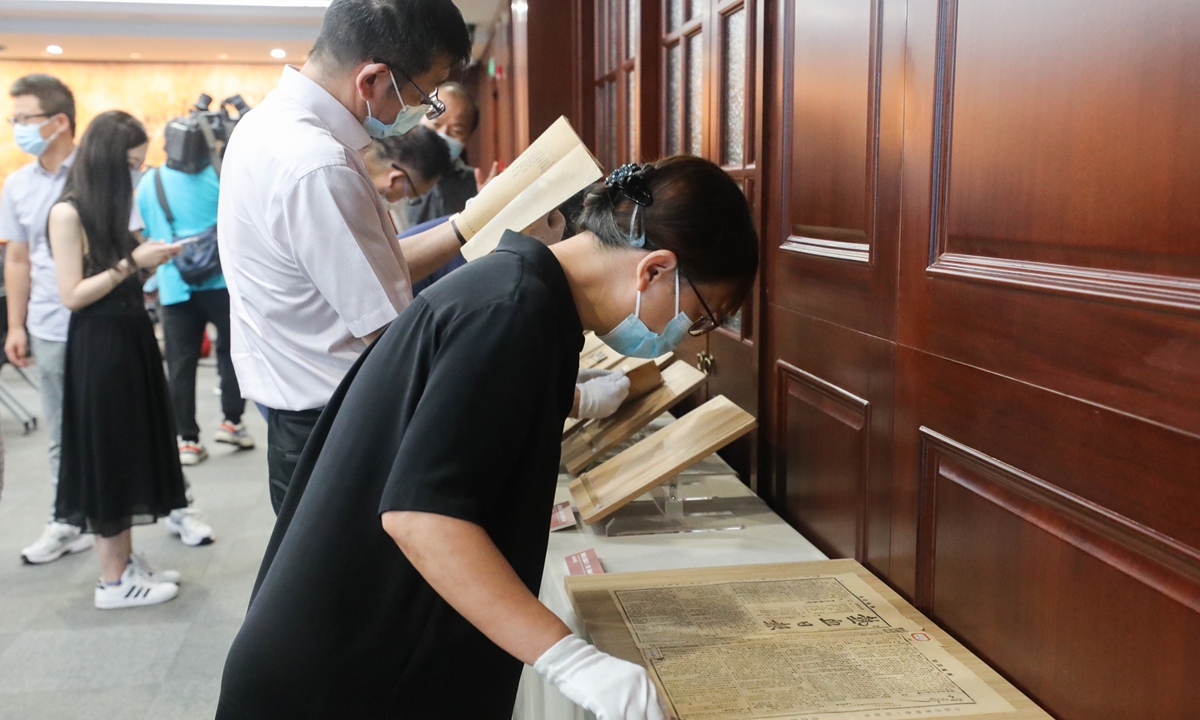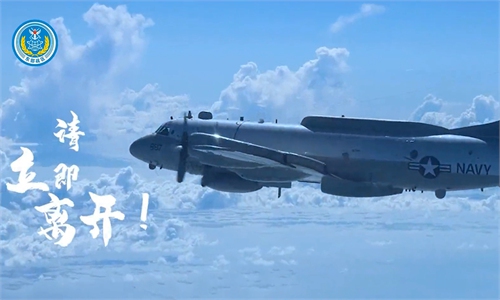ARTS / CULTURE & LEISURE
Event held at founding site of first CPC Congress
Shanghai commemorates 96th PLA’s anniversary

Photo: Curtesy of the Memorial of the First National Congress of the Communist Party of China
The inaugural collection appraisal and research event was held at the Memorial of the First National Congress of the Communist Party of China (CPC) in Shanghai recently to celebrate the 96th anniversary of the founding of the People's Liberation Army (PLA).
The event aims to strengthen the protection and utilization of revolutionary cultural relics, promote revolutionary culture and inherit the red gene, Xue Feng, curator of the memorial, told the Global Times on Tuesday.
More than 20 Party history experts, staff members from revolutionary venues, collectors of revolutionary relics and social participants were invited to appreciate and discuss a collection of artifacts related to the revolutionary history of the Party.
Dai Zheheng, a Party history enthusiast and graduate student at Zhejiang Normal University, made a special trip from the eastern city of Shaoxing to participate in this event, media reported. He said that he had visited many museums, but being able to wear gloves and touch the artifacts to feel the weight of history was a first-time experience for him.
This unveiling of historical items has allowed more revolutionary relics to be showcased to the public and enhance research interpretation of these artifacts, Xue noted.
Nineteen sets of relics from the early days of the PLA were exhibited, including documents, books, newspapers and personal items used by the revolutionary heroes.
Among them, there were a weapon used by the armed uprising postal workers, a large knife and a blanket used during revolutionary activities by Wang Yifei, a former member of the Central Military Commission.
"This large knife was used by the postal workers to attack a police station and train station during the third armed uprising of Shanghai workers," said Ma Jun, a researcher at the Institute of History of the Shanghai Academy of Social Sciences.
"Many historical studies share a common origin. I hope that we have the opportunity to think and explore the artifacts more broadly and across fields through collaboration," he noted at the event.
Huang Wei, an administrator at the memorial and the former site of the Party's Central Military Commission, said she was "impressed" by the blanket used by Wang Yifei, adding that "the old blanket bore witness to the struggles of the Central Military Commission in Shanghai."
For Huang, the item serves as a reminder to dig deeper into historical materials, tell the stories of the artifacts thoroughly and make them active teaching materials.
Xu Guangshou, an expert on Party history, said at the event that the Shanghai Bookstore was the first public publishing institution established by the CPC and that the Party's first publicly issued weekly and daily newspapers were also founded in Shanghai.
"All these 'firsts' took place in Shanghai, which is why Shanghai is the birthplace of the Party and the nurturing place of its great founding spirit," he remarked.


